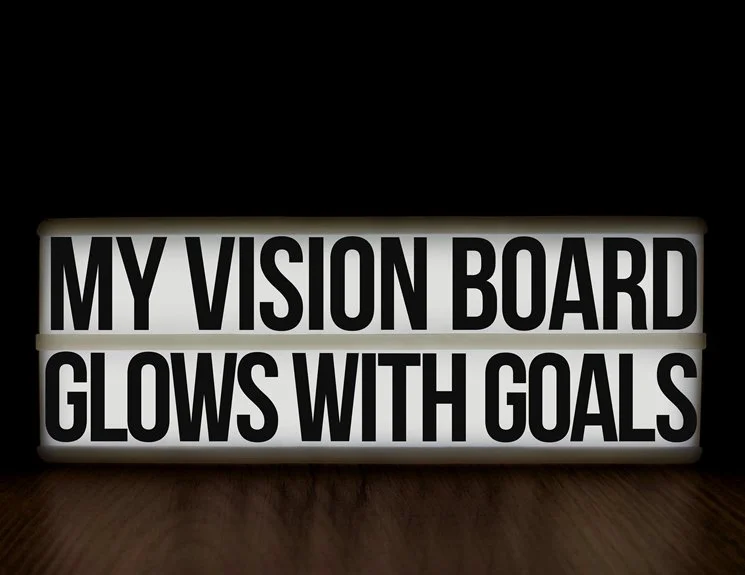
You’ve probably scrolled past countless inspirational quotes during your darkest moments, rolling your eyes at their seeming simplicity—I know I have. But here’s the thing: sometimes the most profound truths come wrapped in deceptively simple words, and when you’re traversing emotional recovery, these carefully chosen phrases can become unexpected anchors. Research shows that positive self-talk actually rewires neural pathways, making healing quotes more than just pretty words—they’re tools for genuine transformation, and these twelve selections might just surprise you.
“The Wound Is the Place Where the Light Enters You.” – Rumi

When you’re sitting in the middle of your pain—whether it’s from a breakup that left you questioning everything, a loss that feels impossible to navigate, or trauma that seems to have rewired your entire nervous system—Rumi’s words might sound like spiritual bypassing at first glance.
But here’s what research actually shows: post-traumatic growth (PTG) is measurable, documented phenomenon where people develop stronger relationships, deeper spiritual connections, and enhanced personal strength after adversity. Your wounds create neuroplasticity—literally rewiring your brain for resilience.
That emotional fracture you’re experiencing? It’s not just damage; it’s an opening for empathy, wisdom, and authentic connection you couldn’t access before. The light doesn’t erase the wound—it transforms it into something that can illuminate your path forward and guide others through their darkness.
“You Are Braver Than You Believe, Stronger Than You Seem, and More Loved Than You Know.” – A.A. Milne
Although this quote comes from a children’s book about a stuffed bear who gets stuck in rabbit holes and has an unhealthy obsession with honey, A.A. Milne understood something profound about human resilience.
When you’re drowning in emotional pain, your internal critic becomes ruthless—whispering lies about your weakness, isolation, and inadequacy. But here’s what I’ve learned through my own messy healing journey: that critic is wrong.
Research shows we consistently underestimate our coping abilities by 40-60%, a phenomenon psychologists call “affective forecasting bias.” You’ve survived every difficult day so far, haven’t you? That’s not luck—that’s strength.
Your support network, even when invisible during dark moments, remains real. Sometimes the most revolutionary act is simply believing you deserve the love already surrounding you.
“Healing Doesn’t Mean the Damage Never Existed. It Means the Damage No Longer Controls Our Lives.” – Akshay Dubey

How many times have you heard someone say “just get over it” or “let it go,” as if healing worked like deleting files from your computer’s hard drive? Here’s the truth: authentic healing doesn’t erase your past—it transforms your relationship with it.
When you embrace this mindset shift, you’re reclaiming your power from the very experiences that once controlled you. Consider these powerful realities:
- Your scars become evidence of survival, not sources of shame
- Past trauma can fuel present wisdom and compassion
- Healing means choosing your response rather than reacting automatically
- You’re integrating experiences, not pretending they didn’t happen
Research shows that post-traumatic growth—developing strength through adversity—happens when we acknowledge our wounds while refusing to let them dictate our future choices.
“Turn Your Wounds Into Wisdom.” – Oprah Winfrey
Every painful experience in your life carries within it the seeds of profound understanding—what you’ve endured isn’t just suffering, it’s your future superpower waiting to be accessed. When Oprah talks about turning wounds into wisdom, she’s describing post-traumatic growth: the psychological phenomenon where people emerge stronger after adversity. Think about it—you wouldn’t trust relationship advice from someone who’s never had their heart broken, right? Your scars become your credentials.
Research shows that 70% of trauma survivors report positive changes afterward, including deeper relationships and increased personal strength. Your pain creates empathy, resilience, and insight that can’t be taught in textbooks. Every betrayal teaches you about loyalty, every loss reveals what truly matters. You’re not broken—you’re becoming the person others will turn to when they’re struggling.
“The Only Way Out Is Through.” – Robert Frost
When you’re sitting in the thick of emotional pain—whether it’s grief that feels like it’s suffocating you, anxiety that won’t let you sleep, or depression that makes getting out of bed feel impossible—your brain desperately searches for an escape route, a detour, anything but facing the raw intensity of what you’re feeling.
But here’s what I’ve learned: avoidance prolongs suffering. Robert Frost’s wisdom cuts deep because it acknowledges a fundamental truth about healing—you can’t bypass the hard stuff.
The “through” isn’t pretty, but it’s where transformation happens:
- You’ll sit with discomfort instead of numbing it
- You’ll process emotions rather than suppressing them
- You’ll develop resilience by facing challenges head-on
- You’ll discover strength you didn’t know existed
This isn’t about wallowing—it’s about courageous authenticity.
“You Have Been Assigned This Mountain to Show Others It Can Be Moved.” – Mel Robbins

As you move through that difficult terrain, something profound shifts—your struggle stops being just about you and transforms into something that can light the way for others. You’re not randomly suffering through hardship; you’re being equipped with wisdom that’ll become your superpower.
Think about it: the people who’ve helped you most weren’t those who’d perfect lives—they were the ones who’d wrestled with similar demons and won.
Your mountain isn’t punishment; it’s preparation. Research shows that post-traumatic growth often leads to increased empathy and stronger relationships.
When you share your story (and trust me, you’ll know when you’re ready), you’ll discover something amazing: your vulnerability becomes others’ permission slip to heal, your scars become their roadmap to recovery.
“Grief Is the Price We Pay for Love.” – Queen Elizabeth II
Those four words from Queen Elizabeth II cut straight to the heart of one of life’s most confusing contradictions: the deeper we love, the more devastating our losses become.
It reframes grief as evidence of love — not weakness or failure, but proof you’ve experienced something profound. It normalizes the intensity of your pain — Queen Elizabeth herself understood that crushing grief means you loved deeply. It connects you to universal human experience — even royalty faces the same emotional arithmetic we all do. It offers permission to feel fully — your grief isn’t too much; it’s proportional to your love.
You’re not broken for hurting this deeply; you’re human for loving this completely.
“Your Present Circumstances Don’t Determine Where You Can Go; They Merely Determine Where You Start.” – Nido Qubein

While grief teaches us about the depth of our capacity to love, this wisdom from entrepreneur Nido Qubein reminds us that our current pain — no matter how overwhelming — isn’t writing the final chapter of your story. You’re not trapped by today’s circumstances; you’re simply using them as your launching pad.
Think of it like this: even successful CEOs started somewhere, often from rock bottom — bankruptcy, divorce, loss. Your emotional recovery follows the same principle. Research shows that post-traumatic growth (positive psychological change following adversity) occurs in 70% of trauma survivors who actively engage in healing. You’ve got more control than you realize.
Your present situation is simply data, not destiny — it’s informing your next strategic move, not limiting your potential outcomes.
“Sometimes Good Things Fall Apart so Better Things Can Fall Together.” – Marilyn Monroe
Three years after her messy divorce, my friend Sarah met the love of her life at a grief support group — not exactly the rom-com meet-cute she’d imagined, but proof that Marilyn Monroe’s famous wisdom hits different when you’re living it.
When you’re watching your carefully constructed life crumble, Monroe’s quote feels like empty consolation. But here’s what I’ve learned: sometimes the universe isn’t punishing you — it’s making space.
Consider these signs that your breakdown might be a breakthrough:
- You’re questioning relationships that drain rather than sustain you
- Career paths that felt “secure” now feel suffocating
- Old coping mechanisms aren’t working anymore
- You’re craving authenticity over approval
That discomfort? It’s growth knocking. Your “good enough” life is clearing out to make room for something extraordinary.
“You Are Not Broken. You Are Breaking Through.” – Alex Elle

Last week, I watched my sister ugly-cry in Target’s cereal aisle after her therapist told her she wasn’t “damaged goods” — she was simply experiencing what psychologists call post-traumatic growth, that messy, uncomfortable process where your brain literally rewires itself after hardship.
You’re not broken; you’re breaking through barriers that once held you back. When you feel scattered, overwhelmed, or like you’re falling apart — that’s your mind creating new neural pathways, stronger connections that’ll serve you better than before. Research shows this breakthrough process actually increases resilience, empathy, and personal strength: three qualities that make you formidable, not fragile.
Those moments when you can’t stop crying or everything feels too much? That’s not weakness — that’s transformation happening in real-time, and it requires incredible courage to endure.
“Rock Bottom Became the Solid Foundation on Which I Rebuilt My Life.” – J.K. Rowling
Before J.K. Rowling became a literary powerhouse, she was a single mother living on welfare, battling depression, and feeling like a complete failure. Yet she transformed her darkest moment into her greatest strength—and you can too.
When life strips everything away, you’re left with something precious: clarity about what truly matters. Your rock bottom isn’t punishment; it’s preparation for your comeback.
Here’s how to rebuild from your foundation:
- Acknowledge your resilience—you survived 100% of your worst days
- Inventory your remaining assets—skills, relationships, dreams that endured
- Start small but start—Rowling wrote in cafés between caring for her daughter
- Trust the process—foundations take time, but they support everything above
Your lowest point becomes your launching pad when you choose to rebuild rather than remain.
“Be Patient With Yourself. Self-Growth Is Tender; It’s Holy Ground. There’s No Greater Investment.” – Stephen Covey
Once you’ve built that solid foundation from your rock bottom, the real work begins—and here’s where most of us stumble because we expect ourselves to sprint when we should be learning to walk again. Stephen Covey nailed it: self-growth isn’t a race you can win through sheer willpower.
It’s tender work—the kind that requires you to treat yourself like you’re cultivating something precious rather than fixing something broken. Neuroplasticity research shows our brains need time to form new neural pathways, which means those moments when you’re frustrated with your “slow” progress? That’s actually your brain rewiring itself.
You’re literally becoming a different person, and that transformation deserves reverence, not impatience. Trust the process—you’re your own greatest investment.
Conclusion
You’ve got this—even when it doesn’t feel like it. These quotes aren’t just pretty words; they’re roadmaps through the messy, complicated work of healing. Your pain matters, your progress counts, and honestly, you’re doing better than you think. Healing isn’t linear, it’s not pretty, and it definitely doesn’t happen overnight—but every small step forward is proof of your incredible resilience. Trust the process, trust yourself.





Leave a Reply